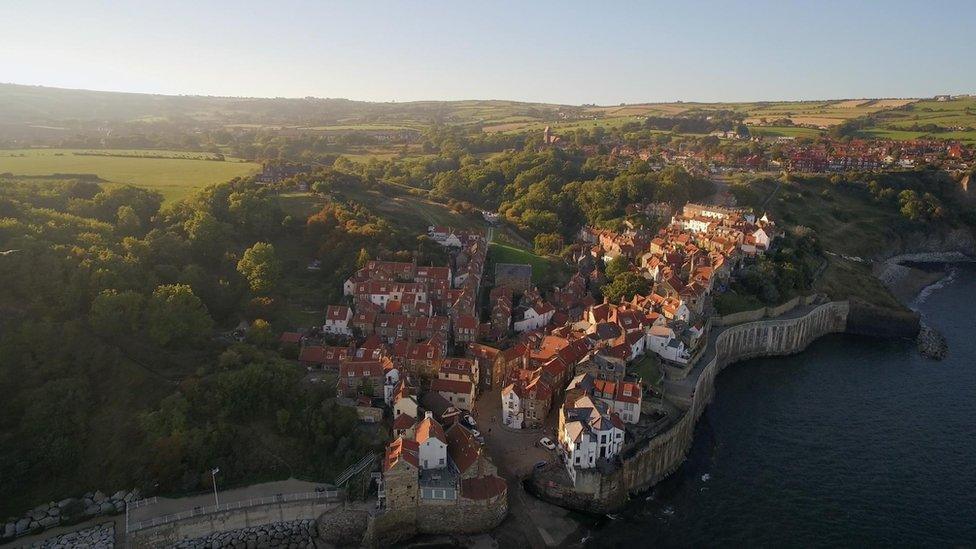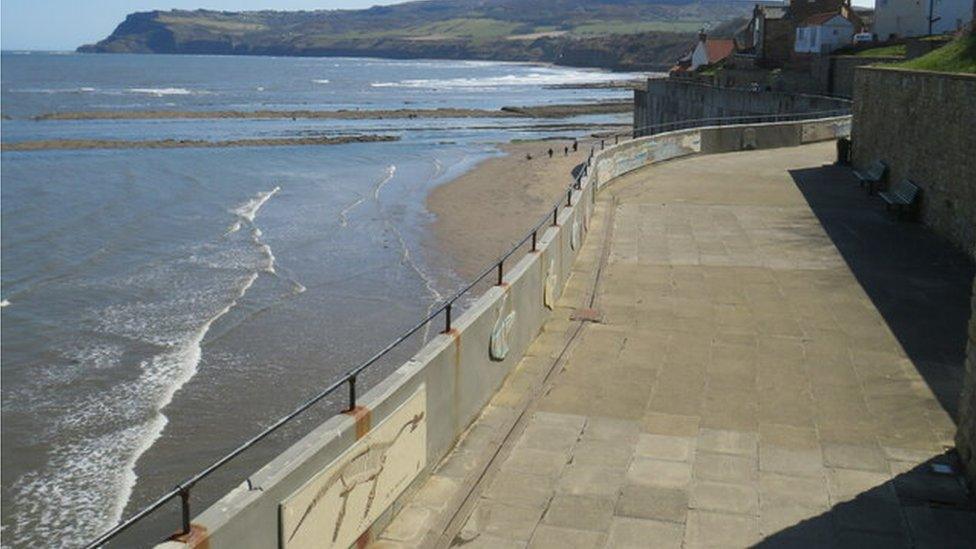Robin Hood's Bay sea wall improvements approved
- Published

Robin Hood's Bay on the North Yorkshire coast is a popular tourist destination
An extra £850,000 is to be spent on sea defences in a Yorkshire coastal village after a council warned doing nothing was "not an option".
Scarborough Borough Council has already secured financing of £759,000 for work on the sea wall at Robin Hood's Bay.
The additional cash would ensure the defences remained viable for the next 50 years, the authority said.
The wall has been in place since 1974 and protects about 40 properties from the effects of coastal erosion.
The structure is 46ft (19m) high and 525ft (160m) long and is the biggest structure the council maintains.
It is situated at the western end of the village and has a reinforced concrete face made up of columns and panels and is backfilled with more concrete.
The council said between 1780 and 1974, over 200 properties in Robin Hood's Bay had been lost to the sea, threatening the village's survival.

New sections of the parapet on the wall will be built as part of the work at Robin Hood's Bay
The initial funding for the new work came from the Environment Agency, Fylingdales Parish Council and the Yorkshire Regional Flood and Coastal Committee.
The cash will be spent on removing and replacing concrete panels, creating new sections of the parapet at the top of the wall and replacing the steel handrail, which runs the length of the wall.
The council said the work would ensure the life of the barrier was extended for as long as possible.
A wider capital maintenance scheme for the Robin Hood's Bay sea wall would see maintenance work carried out every 10 years, protecting over 180 additional properties, delaying the need for a completely new multi-million pound wall.
Councillor Michelle Donohue-Moncrieff, cabinet member for environment and sustainability, said the authority had a duty to minimise the impact of coastal erosion and doing nothing was "not an option".
"The £850,000 means vital work could be carried out to ensure the defences are still there in 50 years' time," she said.

Follow BBC Yorkshire on Facebook, external, Twitter, external and Instagram, external. Send your story ideas to yorkslincs.news@bbc.co.uk, external.